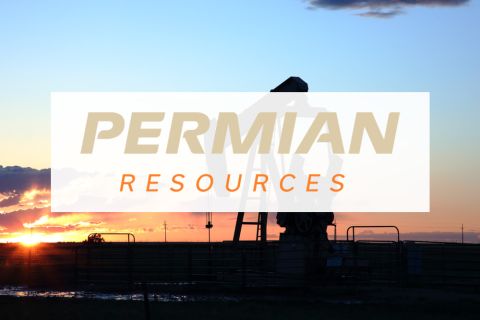
The British Columbia government says the Trans Mountain Expansion pipeline needs 1,200 permits before construction can begin; only 66 have been issued thus far and Kinder Morgan has already pushed back its schedule by nine months.
The Canadian government is supporting the National Energy Board’s idea to create a “standing panel” to speed up permit approval. And on that prosaic point a war of words has erupted between the West Coast and Ottawa.
"The federal government should get its nose out of British Columbia's business unless we’re … violating federal laws. We are not,” George Heyman, BC environment and climate change strategy minister, told the Canadian Press last week. He was responding to a statement released by Canadian Natural Resources Minister Jim Carr about the standing panel: “The government is supportive of establishing a process that would assist in resolving any conflicts over the issuance of municipal or provincial permits and avoid unnecessary delays to project construction or regulatory compliance.”
The BC NDP, a provincial arm of the Canadian democratic socialist party, formed a minority government this summer after campaigning against the 525,000 barrel per day pipeline that would twin the existing system from Edmonton, Alberta to Burnaby, BC in metro Vancouver. Heyman is the former executive director of the BC Sierra Club and is vehemently opposed to the controversial project, which is being fought by a coalition of coastal indigenous communities, local municipalities like the City of Burnaby (where Kinder Morgan’s marine terminal resides), and a collection of powerful environmental groups.
While Heyman is framing the issue as provincial vs. federal law, that is a clever way of disguising the real legal issue in play, which is that the federal government has exclusive jurisdiction under the Canadian Constitution for “inter-provincial works,” including pipelines that cross provincial borders, according to James Coleman, a professor at the Dedman School of Law at Southern Methodist University. The province’s jurisdiction is limited to oversight of minor issues, like vegetation management on the pipeline right of way.
The BC government, however, is trying to both expand its regulatory powers and delay issuing permits for as long as possible, hoping that Kinder Morgan will eventually tire of the delays and extra expense, and canceling the project. “Death by a thousand cuts,” is how Coleman describes the Horgan government’s approach.
“Ultimately, the question will be ‘Does this frustrate the NEB’s mandate and the federal approval of the pipeline? What makes it tricky is that the province and the different municipalities have the right to go through a permitting process, etc.?’ Kinder Morgan is trying to prove that the delays that they’re experiencing are not just run-of-the-mill delays, they're actually putting the project in danger,” Coleman explained in an interview.
Recent comments by Kinder Morgan suggest the BC strategy may be working. The Houston-based company says it will delay construction, to have started early next year, for nine months while it concentrates on sorting out the permitting process and resolving the delays. Three weeks ago Kinder Morgan told the NEB, “it is critical for Trans Mountain to have certainty that once started, the project can confidently be completed on schedule,” according to a statement released on the weekend.
The company pulled no punches about what will happen if “uncertainty around permitting and judicial processes” extends past 2018. Apart from reducing the 2018 spend and pushing the in-service date beyond 2020 (instead of fall of 2019, as planned), if Trans Mountain Expansion continues to be “faced with unreasonable regulatory risks due to a lack of clear processes to secure necessary permits . . . it may become untenable for Trans Mountain’s shareholders . . . to proceed.”
Heyman argues that Kinder Morgan’s permits are not forthcoming because it has failed to meet the necessary standards.
“Quite frankly, they’ve yet to be approved because Kinder Morgan has failed in their responsibility to do the environmental research and present the environmental plans that are needed to support approval of the permits,” the minister told local media last month. “They've failed to do, in many cases, adequate First Nations consultation to support the approval of their permits. Kinder Morgan should look at themselves for any delays they are experiencing.”
If left to the BC government to determine if Kinder Morgan has done the necessary work to be granted the permits, the bar would likely be set so high they would never granted, says Coleman, or at least not in a timely fashion.
“These projects don’t come through every day, so determining what’s a reasonable delay for a permit and what is unreasonable is difficult,” said Coleman. “Both the BC government and the municipalities have gotten a little smarter and realized there’s a bunch of ways they can delay permits without appearing unreasonable.”
This is why Heyman is so opposed to the idea of an NEB standing panel resolving the question of what is reasonable and what is unreasonable. But Carr and the Canadian government are standing behind Kinder Morgan. Ottawa desperately needs the tax revenue from the Alberta oil sands, estimated at tens of billions a year, and worries that Canada is at risk of gaining a reputation as being unfriendly to investors.
“The Government has taken an important step to ensure that when a natural resource project is approved, it proceeds in a timely fashion and continues to generate economic benefits for all Canadians,” the minister said in his statement. The next six to nine months will determine which side wins the struggle over the Trans Mountain Expansion pipeline.
Recommended Reading
APA Corp., TotalEnergies Announce $10.5B FID on ‘Goliath’ Sized Deal Offshore Suriname
2024-10-01 - APA and TotalEnergies’ offshore Suriname GranMorgu development is estimated to hold recoverable reserves of more than 750 million barrels.
Utica’s Encino Boasts Four Pillars to Claim Top Appalachian Oil Producer
2024-11-08 - Encino’s aggressive expansion in the Utica shale has not only reshaped its business, but also set new benchmarks for operational excellence in the sector.
Oceaneering Acquires Global Design Innovation
2024-10-30 - Oceaneering purchased Global Design Innovation, the only provider certified by the United Kingdom Accreditation Service (UKAS) to perform remote visual inspection using point cloud data and photographic images.
Permian Resources Closes $820MM Bolt-on of Oxy’s Delaware Assets
2024-09-17 - The Permian Resources acquisition includes about 29,500 net acres, 9,900 net royalty acres and average production of 15,000 boe/d from Occidental Petroleum’s assets in Reeves County, Texas.
Comments
Add new comment
This conversation is moderated according to Hart Energy community rules. Please read the rules before joining the discussion. If you’re experiencing any technical problems, please contact our customer care team.





